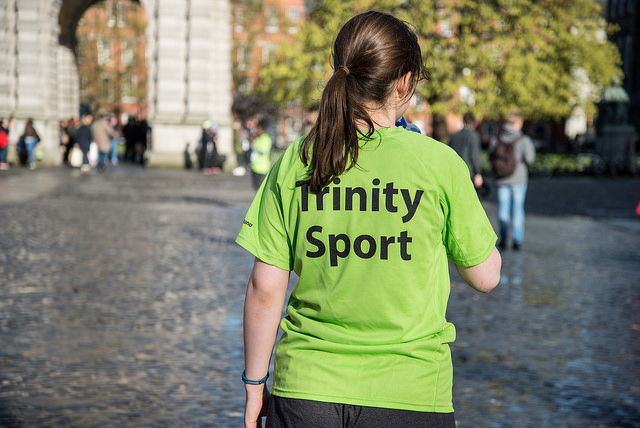Trinity’s Fellows will have the potential to veto plans for a Christmas exam week and a two-week earlier start to the teaching term when they vote this week on the newly proposed academic year structure.
The revised structure, which advocates for a system of semesterised learning and assessment, in which a Christmas exam week will be introduced in addition to an exam week at the end of the academic year from the 2018/19 academic year, was approved by University Council on June 28th, 2016.
For the changes to be implemented, however, changes to the College Statutes, the basic rules of the university, are required. For the changes to be made, the assent of the majority of the Fellows is necessary.
A document submitted to the College Board on December 14th, 2016, seen by The University Times, outlined these proposed changes to the statutes. Included in these changes is the removal of current wording that “annual undergraduate examinations are normally held in Trinity Term”.
Speaking to The University Times, Dale Whelehan, Education Officer of Trinity College Dublin Students’ Union (TCDSU), stated that, at a meeting of University Council, “the point was raised that if the Fellows dissent from voting, that all assessment would return to Trinity Term, as stated in the Statutes. So that would have implications for stuff like continuous assessment, lab work, assignments and stuff like that”.
“Either way, it’s going to have a major impact on future assessment in Trinity”, he continued.
Whelehan, along with Provost Patrick Prendergast, addressed the Fellows on Wednesday February 1st about the proposed changes. Speaking before the meeting, Whelehan said it was “an opportunity for the Fellows to raise their concerns with the project and for the Provost to be able to address those concerns”.
“What we’re hoping is that we can separate those issues that they have with the project and use the vote solely on what that vote is for, which is semesterisation, and not use it as like a proxy vote for what they disagree with in the project”, he added. Whelehan said he couldn’t comment on the meeting with the Fellows, because it was in camera. Prendergast spoke first at the meeting, while Whelehan highlighted the student support for Christmas exams. The Fellows were also offered the opportunity to question the Fellows on the changes to the academic year structure.
In an email statement to The University Times, the Vice-Provost, Prof Chris Morash, who serves as project sponsor for the Trinity Education Project, stated: “In some respects, what we are seeing is a classic case of a vote getting caught up in other issues.”
“The Trinity Education Project has a lot of moving parts, it impacts on the entire college community, and not everyone is going to agree with every detail. Fair enough. Something this big is always going to raise complex questions, but there are collegial ways to work through such questions – with discussion, compromise and reasoned debate”, Morash continued. “They aren’t ‘problems’ in the sense of something problematic; they are ‘problems’ in the sense of something to be solved, and solved they will be. The important point here is these issues are not on the ballot on January 30th. That question on that ballot boils down to one simple question: Does Trinity allow Christmas exams?”
Ballots are to be distributed to the Fellows this week and are due to be returned in three weeks.
Under the College’s system, an unreturned ballot counts as a vote against a proposal, rather than a lack of a vote. Despite this, Whelehan was hopeful that the Fellows would assent: “I feel if we can clarify any of the issues and problems that they’re having at that meeting and reassure them that their voice will be taken into consideration for any of the other structures that need to be implemented, I think they will assent.”
It is for this reason that, writing for The University Times in November, Morash urged students to lobby their lecturers, “particularly those who are Fellows, to support the motion when it comes forward”. TCDSU currently has a mandate to advocate for the introduction of Christmas exams, after over 90 per cent of voters agreed that the union should campaign for a semesterised exam structure in a referendum held in the 2009/10 academic year.
In an email statement to The University Times, Diarmuid Rossa Phelan, Chair of the Fellows, stated that the vote “is an assent, not a vote for or against”.
“One matter on process, having chaired these events and listened to other discussions, which occurs to me is this: the phrase ‘protest vote’, a phrase which echoes into College from its currency in external political happenings, is unhelpful. ‘Protest vote’ categorises those who may be disinclined to assent as protesters, and characterises those who use it as unwittingly disrespectful of the checks and balances in the Statutes”, Rossa Phelan continued.
“A refusal to assent in this statutory system is better categorised as an absence of conviction than as a vote of protest. It is the assents which are counted. Having chaired many discussions, I am certain that there are as many differing articulate views for and against as there are Fellows. This is process, not protest, and appropriate in a collegiate and discursive community.”
The new year structure comes as part of the ongoing Trinity Education Project, which aims to review and change the education offered to undergraduate students in Trinity, including how they are taught and assessed. As Vice-Provost, Morash serves as sponsor for the project. Currently in its planning and implementation phase, its proposals include new extra and co-curricular modules as well as the introduction of fixed timetables.
Rossa Phelan added that “the role assumed by the Chair of the Fellows is to facilitate neutral debate and information for the Fellows”, adding that the Fellows invited the College Registrar and, separately, the Vice-Provost, to meetings, and that both “articulated reasons to assent and responded to differing views and discussed the Trinity Education Project more generally”.
Rossa Phelan is to write a letter to the Fellows “in the coming days with a short summary of some for and against arguments” and a thread has been established on the Fellows’ website “ if Fellows wish to articulate amongst themselves their views in that medium”.
Whelehan will be speaking to the Fellows “on behalf of the student body who overwhelmingly supports the semesterisation and has for years”.
A forum on proposals for a revised year structure held on April 18th, 2016, saw no students in attendance, despite a college-wide email invitation. Thirty-one academics and eight administrative and professional staff attended the forum.
The proposed changes would also alter the lengths of Trinity’s terms, including the lengthening of Hilary Term, the second term of the academic year, from 12 weeks to 14, and the shortening of Trinity Term, the third term of the academic year, in which annual examinations take place, shortened from six weeks to 12. While the start of Michaelmas term, and thus the start of the academic year, would still be defined as the last Monday of August, it is proposed that teaching would start two weeks earlier within the term.
Whelehan stated that, should assent not be given and the revised year structure thus unable to proceed, “it’s not the end of the world”, with other aspects of the project, such as revised entry routes into the College’s courses, still able to proceed. He added, however, that “it’s the only vote in relation to the Trinity Education Project that the Fellows have to vote on” and that it could have “a cultural effect on how the project is going”.
The report submitted to University Council in June for approval, seen by The University Times, had outlined two options, both including a Christmas exam week and an earlier start to the year. The only difference between the two proposals was that one, which was ultimately not accepted, included an afternoon with no timetabled teaching that would allow students to engage with activities outside of their academic involvement.
Both structures were proposed in order to allow schools and departments to diversify assessment and reduce the number of exams sat by students and to encourage students to become involved in learning outside the classroom. The report details the need for a cultural change to take place for these changes to be implemented. It states that this will not be possible “if current practice is simply transposed to the new academic year structure”, noting that academic staff “consider a broader range of both formative and summative assessment practices”.
Speaking to The University Times the day before the new structure was approved by University Council in 2016, the then-Vice-Provost and project sponsor of the Trinity Education Project, Prof Linda Hogan, stated that “the proposal is that we radically reduce the numbers of assessments per module and per programme, and that we just have one week of assessment each semester”.
A document submitted to a meeting of University Council on June 8th, 2016, states that the motivation behind introducing the new structure was to “encourage the introduction of a broader range of both formative and summative assessment practices spread across the academic year”, with the view of reducing the current “strong emphasis on end-of-year summative assessment, most particularly, examinations”.







